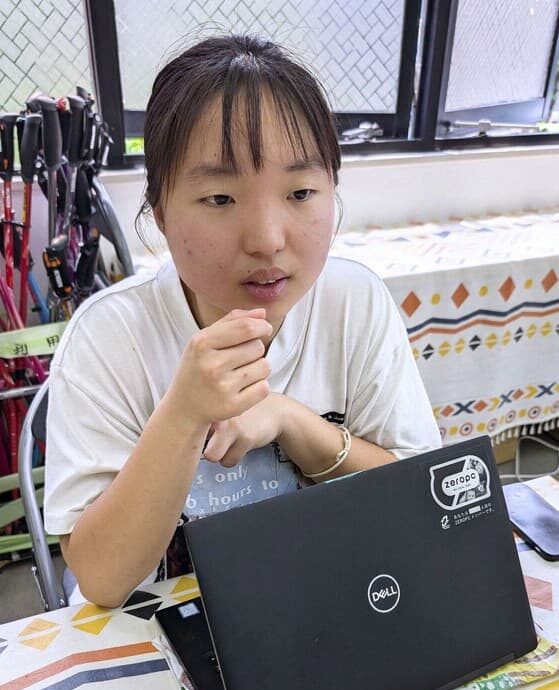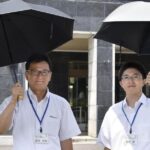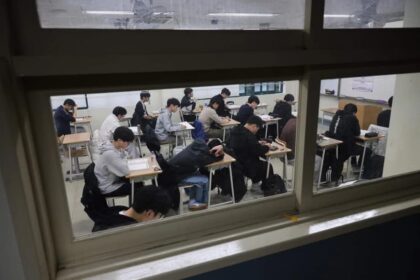A safety net that keeps education within reach
A quiet but determined effort is helping teenagers in Japan stay in school when a change in legal status risks shutting classroom doors. A private scholarship launched in 2023 by the Solidarity Network with Migrants Japan and the Anti Poverty Network supports high school students who lack residency status. The aim is simple and urgent, keep education and future work options alive for young people whose families cannot access public aid past junior high.
- A safety net that keeps education within reach
- Why high school is the breaking point
- What the scholarship program does
- Rights and routes to education and status
- How widespread is the problem
- What Japan can learn from other countries
- Steps schools and communities can take now
- Policy options under discussion
- Key Points
Behind the program are stories of adolescence shaped by paperwork and policy. In August, a university student tutor visited a 16 year old high school student from a Middle Eastern country now living in the Kanto region. The tutor handed her a 10,000 yen grant, enough to cover one month of public high school tuition, then checked in on her studies and mood. Her parents fled persecution and applied for refugee status with permission to work. Three years ago, they were placed on provisional release, a status that suspends detention while deportation is pending but removes the right to work. Last year, after the 2023 revision to the Immigration Control and Refugee Recognition Act, the family moved to supervised release, which allows some people awaiting deportation to work under a supervisor designated by the Immigration Bureau. Even with that change, they have not found jobs.
The teenager keeps sketchbooks close and a fashion design dream in mind. Money is tight. She missed school trips that classmates still talk about. An 18 year old tutor encouraged her to study for language credentials, including the Eiken English test and the Japanese Language Proficiency Test, to widen admissions options at universities and vocational schools.
After the home visit, the student spoke about what keeps her going.
“My dream is to become a fashion designer. I want to go to a vocational school, but I am unsure if it is possible.”
Why high school is the breaking point
Elementary and junior high are compulsory in Japan, and local governments offer support that ensures children can attend. High school is not compulsory, although nearly all students enroll. Fees and related costs begin to matter more at this stage. Households with recognized residency can receive tuition support and other assistance, but those without residency status are typically excluded. When parents also lack permission to work, even modest school fees and routine expenses become heavy burdens.
Beyond tuition, families must cover uniforms, textbooks, club activities, lunches, and school trips. For a family with no steady income, a single payment for a trip or a new set of art supplies can mean choosing between participation and withdrawal. The scholarship’s monthly grant is small by design, but it can be the difference between attending class without anxiety and missing opportunities that help students feel included.
What Japan’s immigration rules mean for families
Provisional release is a key term in this story. It is the temporary suspension of detention for people with deportation orders. Those on provisional release cannot work, must report to authorities at set times, and live with the pressure that their legal situation may change. For parents, this means no formal income. For their children, it means learning while watching adults struggle to pay bills.
The 2023 legal revision introduced supervised release for some people who would otherwise remain on provisional release. Under supervised release, limited employment can be granted when a designated supervisor oversees the person awaiting deportation. In practice, employers are cautious. The rules are complex, and hiring someone whose status could change is daunting. Many families remain without work. High school students in these households seldom take part time jobs, which are common for their peers, because of their status or family concerns. School can become a place of both hope and isolation.
What the scholarship program does
The scholarship created by the Solidarity Network with Migrants Japan and the Anti Poverty Network focuses on what students need most, a modest but steady grant, regular visits from tutors, and help with the invisible barriers that affect admissions and hiring. A 10,000 yen monthly grant can cover a month of public high school tuition. Tutors travel to students, sometimes to living rooms crowded with siblings and homework, to offer academic support and coaching on how to explain their situation in clear, respectful terms.
That guidance matters because administrative surprises can derail even strong students. Tutors report cases where a school admission or a job offer was withdrawn after graduation because an employer or institution requested documents the student could not provide quickly or did not know how to explain. Practicing these conversations builds confidence.
Miwa Kato, a 22 year old tutor in the program, has seen talented students lose out not because of grades, but because of confusion at the point of entry.
“Some people have had school admissions or job offers rescinded despite meeting high school graduation requirements. It is difficult for high school students to secure advance confirmations or explain their situations in writing. We practice how to communicate with others so that they are not left out.”
The effort runs on donations, and that creates uncertainty. Tutors and coordinators would like a stable funding base. Even so, Kato says the mission is clear.
“Children need support so their options are not unfairly limited.”
Rights and routes to education and status
Nanako Inaba, a professor at Sophia University and director of the Anti Poverty Network, has worked closely with undocumented families and their children. She notes that acceptance to a university or a vocational school can, in some cases, open a path to a student visa. That route is narrow and depends on individual circumstances, but it exists. The harder part is getting to graduation with the grades, test scores, and recommendations that selective programs require while living under financial and legal stress.
Inaba places this challenge in a broader frame. Japan has ratified the United Nations Convention on the Rights of the Child. That treaty recognizes a right to education and calls on states to make secondary education available and accessible to every child and to facilitate access to higher education based on capacity. Inaba argues that children who have grown up in Japan should not face barriers that exclude them from education because of a legal status they did not choose.
“Many of these children were born here or arrived at a young age. Their lives are rooted in Japan. For those who graduate high school here, the government should guarantee their rights, including considering creating pathways to permanent residency.”
Her position reflects an everyday reality in classrooms. Many undocumented teenagers have been in Japanese schools since their first day of class. Their Japanese is fluent. Their friendships and aspirations are local. They prepare for the same English and Japanese language proficiency tests as their peers. Education, Inaba says, should be a right they can practice in full, not a privilege that fades at the end of junior high.
How widespread is the problem
Scholars who study migration in Japan estimate that around 70,000 people lived in the country without residency status in 2023. A portion are parents raising children who attend Japanese schools. Youth interviewees often recall discovering in upper elementary or junior high that their family’s paperwork was different, after a teacher asked for documents or a club trip required identification. That realization brings stress and secrecy at a formative age.
Families on provisional or supervised release face daily trade offs. Parents are often unable to work, and the students themselves usually do not take paid work even when they want to help. The cost of a school trip becomes a crisis. Payments for lunches fall behind. Club fees are hard to cover. The scholarship eases that pressure. Tutors also watch for signs of isolation and encourage students to stay connected to friends and teachers.
Even after graduation, uncertainty can continue. If a university or employer requests a residence card, a young person may not know who to ask or what to present. Offers have been rescinded late in the process. One practical benefit of the scholarship program is that tutors help students contact admissions offices or hiring managers early to clarify what is needed. A clear checklist prevents late surprises.
What Japan can learn from other countries
Experiences abroad show different ways to support students without legal status. In the United States, several states allow undocumented graduates of local high schools to pay resident tuition at public universities. Many colleges have created private scholarship funds and on campus resource centers that offer legal consultations, financial aid guidance, and a place where students can find peers with similar experiences.
Students there still report gaps, including limited financial aid and the absence of dedicated spaces at some campuses. Community groups and student organizations advocate for more tailored services. Federal civil rights officials have also examined whether some scholarships reserved for undocumented students or DACA recipients unlawfully exclude other applicants. The debate is ongoing, yet the variety of support structures shows that targeted help can coexist with guardrails that protect fairness and transparency.
Large international scholarship programs, including those focused on study in Japan, usually require a valid visa and proof of nationality. That system does not reach teenagers living in Japan without residency status. The private scholarship highlighted here fills a different need. It works earlier in the education pipeline, at the point where a small grant and a reliable adult mentor can keep a high school student engaged and hopeful.
Steps schools and communities can take now
While lawmakers weigh reforms, schools and local groups can reduce day to day harm for students from undocumented families.
- Designate a confidential point of contact at each school where students can ask status related questions without fear.
- Provide written guidance on admissions, graduation, and documentation requirements so students can plan ahead.
- Create a discreet emergency fund through PTAs or alumni associations to cover lunches, trips, or exam fees for those in financial distress.
- Offer preparation for the Eiken test and the Japanese Language Proficiency Test, and explore fee support when possible.
- Train counselors and homeroom teachers to recognize status related stress and to refer students to trusted community partners.
- Partner with nonprofits that can connect families to legal advice and social services.
- Ask vocational schools and employers to publish clear statements on documentation they require for applicants, and to name a contact person for questions.
These steps cannot change immigration status. They can, however, make classrooms more inclusive and remove avoidable hurdles that discourage learning.
Policy options under discussion
Advocates and scholars have outlined several policy ideas that protect education without rewriting the entire immigration code. One approach would ensure that minor children can access education related subsidies regardless of their residency status, which would align practice with the child’s right to schooling. Another idea would create a bridge student visa for high school graduates who have been accepted into a university or vocational school in Japan. That would let education continue while formal status is resolved.
Other suggestions focus on stability for families on supervised release. Limited work permission for parents in households with school age children would reduce reliance on donations and enable them to pay routine education costs. Schools could receive guidance to avoid rescinding admissions when a legal route to a student visa exists, along with a standard timeline for document checks that prevents last minute exclusions. A public private emergency fund for education would bring more predictability to support.
None of these ideas require turning schools into immigration agents. They rest on a simple principle, children who study and live in Japan should be able to sit in class, take an entrance exam, and accept a place in higher education if they earn it. The private scholarship is keeping that principle alive for a small group of students. A broader policy framework could extend that promise to many more.
Key Points
- A private scholarship launched in 2023 supports high school students in Japan who lack residency status with small grants and tutoring.
- Government support typically ends after junior high for undocumented families, and parents on provisional or supervised release often cannot work.
- A 10,000 yen grant can cover a month of public high school tuition, easing pressure on households that struggle with fees and school related costs.
- Tutors help students practice how to explain their situation to schools and employers, reducing the risk of rescinded offers.
- Sophia University’s Nanako Inaba argues that education is a right under the Convention on the Rights of the Child and that graduates should have a path to stable status.
- Estimates suggest about 70,000 undocumented migrants live in Japan, including families with school age children.
- Examples from abroad show resource centers, private scholarships, and resident tuition policies that support undocumented students, though debates about eligibility continue.
- Practical steps for schools include confidential contacts, clear documentation checklists, emergency funds, and partnerships with nonprofits.
- Policy ideas include education subsidies for all minor children, bridge student visas for admitted graduates, and limited work permission for supervised release households.












